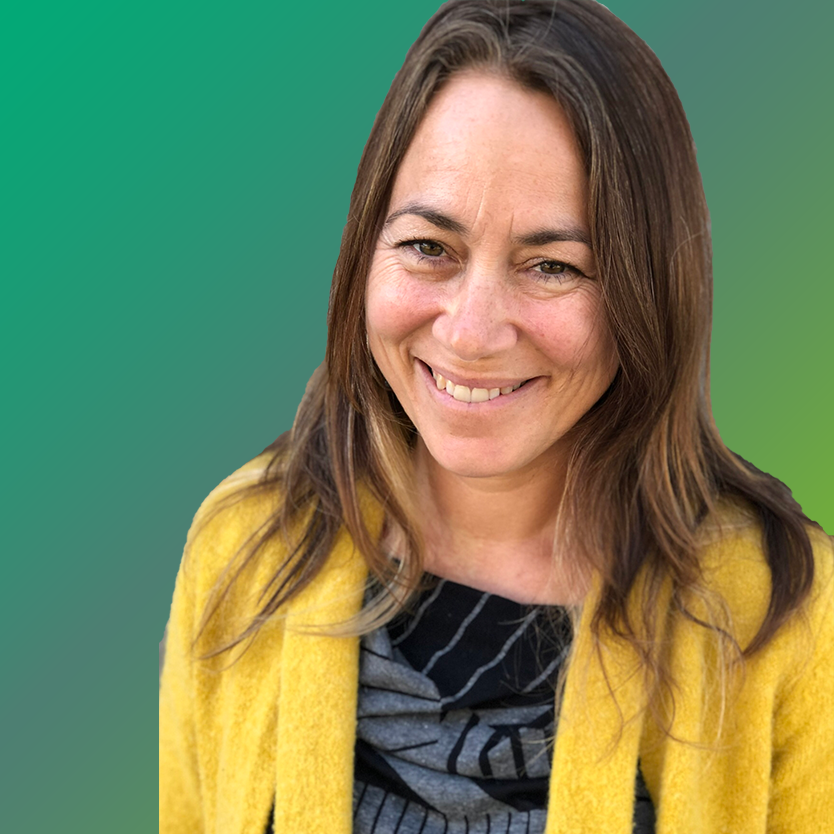|
Session C3
Embracing Uncertainty: Adaptation Pathways from Concept to Practice
Claire Bonham-Carter, Dana Brechwald, Lisa Fisher, & Allan Kapoor
2:00 – 3:30 PM (PT) | 5:00 – 6:30 PM (ET)
| About the Presentation |
|
One of the greatest challenges of adaptation planning is managing the deep uncertainty around climate impacts. While predicting the future (population, jobs, markets, costs, etc.) is a challenge in all planning, the climate crisis presents new levels of uncertainty and will require staggering levels of investment. This has inspired planners to seek a new approach that embraces uncertainty and embeds it into project planning rather than trying to remove it. An adaptation pathway is a decision-making approach that is made up of a sequence of manageable steps or decision-points over time to help manage risk under uncertain future conditions.
Rather than making all the decisions now, the approach is designed to schedule decision-making: it identifies the decisions that need to be taken now and those that are better made in future. It allows decision makers to build adaptation capacity, prioritize strategies, stagger investment, maintain flexibility, and communicate critical climate adaptation concepts that a community should understand as it pursues adaptation goals. It can be particularly helpful when multiple organizations need to collaborate around longer-term strategies. Over the last decade, this approach has experienced growing popularity. For example, adaptation pathways are now recommended or suggested as a potential approach in several key guidance documents in California—such as the recently updated California Adaptation Planning Guide, the Climate-Safe Infrastructure Working Group's Path Toward Climate-Safe Infrastructure in California, and the San Francisco Bay Conservation and Development Commission's Adapting to Rising Tides Program.
But while the concept has grown in popularity, many available examples are academic or theoretical. This panel seeks to communicate lessons learned from several sea level rise adaptation projects in the San Francisco Bay Area that have used an adaptation pathways approach. Our goal is to include a range of perspectives, from regional planners to municipal governments and site-level practitioners. The Bay Conservation and Development Commission's Adapting to Rising Tides Program will discuss the latest update to its sea level rise planning guidance and experiences working with local governments, pilots in the East Bay leveraging the adaptation pathways approach, and why it sees the adaptation pathways approach as a useful tool for regional planning. The City and County of San Francisco Planning Department and AECOM will discuss the application of the adaptation pathways approach on the Islais Creek Southeast Mobility Adaptation Strategy, an area already vulnerable to flooding, involving a complex shoreline with natural and built edges and a variety of public and private landowners.
 Biology Track, 1.5 AICP Credits Biology Track, 1.5 AICP Credits
|
| About the Speakers |
|
 Claire Bonham-Carter Claire Bonham-Carter
Principal, Director of Sustainable Development
AECOM
Claire Bonham-Carter is a Principal with AECOM with over 18 years of experience leading climate change planning and sustainability strategy projects for public and private sector clients in the US and internationally. She specializes in climate vulnerability and risk assessments and adaptation plans for cities and transportation agencies. In the Bay Area she has supported BCDC, MTC and Caltrans in their adaptation planning work for over a decade, recently contributing to ART Bay Area. She led AECOM's work for 100 Resilient Cities with over 30 cities globally including for the cities of San Francisco, Berkeley and Oakland, as well as Miami, Chicago, Dallas, Seattle and Honolulu in the US. Making sure communities are inspired to act and that their voices are integrated into climate projects a key focus for Claire. She is on the Board of National NGO Ecodistricts which focuses on low carbon, resilient and equitable neighborhood planning.
|
|
 Dana Brechwald Dana Brechwald
Program Manager, SF Bay Conservations and Development Commission
Dana Brechwald is the Adapting to Rising Tides Program Manager at the Bay Conservation and Development Commission. She works with regional stakeholders to develop innovative climate adaptation and resilience solutions for the Bay shoreline. Previously, she was a Resilience Planner at the Metropolitan Transportation Commission/Association of Bay Area Governments, focusing on hazard mitigation and long‐term disaster recovery planning, where she designed and managed several projects aimed at increasing resilience to earthquake and climate change hazards. She has also worked in partnership with FEMA, the EPA, and local jurisdictions on long-term recovery planning, multi-hazard vulnerability assessments, and integrating resilience into General Plans. Dana previously worked as a sustainability consultant, and with the Salvation Army and the City and County of San Francisco to develop disaster recovery guidelines and best practices. Dana holds a Bachelor of Architecture from UC Berkeley, and a Master of Urban Planning from Harvard Graduate School of Design.
|
|
 Lisa Fisher Lisa Fisher
Resilience & Sustainability Lead
San Francisco Planning Department
Merging her experience in planning, design, policy, and project management, Lisa helps elevate and drive sustainability, climate resilience, and equity across a broad set of plans and projects. In collaboration with fellow agencies, she's a core contributor to San Francisco's Hazards and Climate Resilience and Climate Action plans and directs the Islais Creek Adaptation Strategy. She created a Sustainable Neighborhood Framework to amplify environmental performance and community benefits through new development, featured in the Central SoMa Plan and major waterfront projects. Previously, as an Associate Principal with AECOM Design & Planning, she managed complex and sustainable urban regeneration projects in Latin and North America for over a decade. She holds a Master of Science in Urban Planning from Columbia University, served on the Board of the San Francisco Bicycle Coalition, and is now a fierce public-school parent volunteer. She's an avid adventurer and spends as much time outside as possible.
|
|
 Allan Kapoor Allan Kapoor
Resilience Planner
AECOM
Allan Kapoor is an urban environmental planner with a Master of City Planning from UC Berkeley, where he focused on GIS analysis and policy for climate change adaptation. Allan sees addressing climate change as an opportunity to improve the efficiency, sustainability, and equity of our cities, rather than as just an inconvenient necessity. At AECOM Allan combines technical proficiency in GIS modelling with a deep understanding of climate change adaptation and mitigation strategies and policy, focusing on climate vulnerability assessments, climate adaptation plans, greenhouse gas mitigation plans, and climate-related decision-making tools. Recent and ongoing projects include a sea level rise vulnerability assessment of the San Francisco Bay Area, a multi-hazard climate vulnerability assessment of the Metrolink commuter rail system in southern California, and a climate action decision-making software tool for the C40 Cities Climate Leadership Group which enables cities to prioritize from hundreds of potential climate actions.
|
|